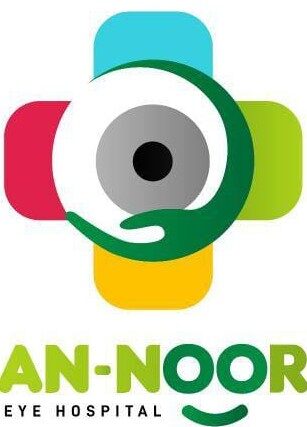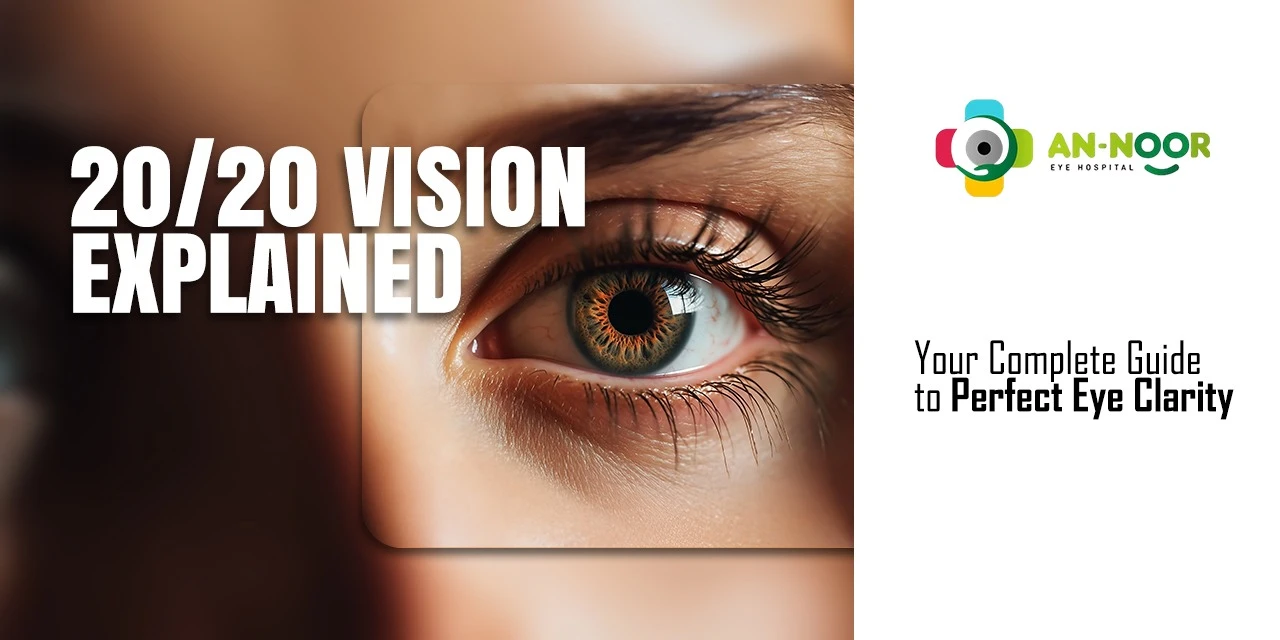Your eyes are your window to the world, and understanding what 20/20 vision truly means is essential for maintaining clear, healthy eyesight. With increasing screen time, city pollution, and lifestyle-related eye issues, keeping track of your vision has never been more important. In Chennai, many hospitals offer eye care, but for comprehensive, patient-focused treatment, Annoor Eye Hospital, recognized as the best eye hospital in Chennai, stands out for its expert team and state-of-the-art technology.
In this guide, we explore everything you need to know about 20/20 vision, how it’s measured, common conditions that affect clarity, and steps you can take to maintain optimal eye health.
What Does 20/20 Vision Really Mean?
The term 20/20 vision refers to the clarity or sharpness of your eyesight measured at a distance of 20 feet. Essentially, if you have 20/20 vision, you can see clearly at 20 feet what an average person should see at the same distance.
- 20/20 vision does not mean perfect vision—it measures only distance clarity.
- People can have 20/20 vision but still face issues like poor depth perception, night blindness, or focusing problems.
- Modern studies from the American Academy of Ophthalmology (AAO 2025) highlight that additional factors like eye coordination and contrast sensitivity are equally important.
How Is 20/20 Vision Measured?
Vision is typically assessed using a Snellen chart, the familiar chart with rows of letters decreasing in size. During an eye exam:
- Patients read the chart from a distance of 20 feet.
- Each eye is tested individually to detect subtle differences.
- Eye specialists may use digital visual acuity tests and advanced imaging for a precise assessment.
Getting tested at a reputed facility like Annoor Eye Hospital ensures accuracy and personalized recommendations for maintaining eye clarity.
Is 20/20 Vision the Same as Perfect Vision?
Many assume 20/20 vision equals perfect eyesight, but this is a common misconception.
- 20/20 vision measures only distance clarity.
- Perfect vision also involves:
- Peripheral awareness
- Near vision
- Depth perception
- Night vision and contrast sensitivity
At Annoor Eye Hospital, comprehensive testing covers all these aspects to ensure your eyes are functioning at their best.
Common Conditions That Affect Vision Clarity
Even individuals with previously good vision can face issues due to:
Cataracts
Cataracts occur when the eye’s natural lens becomes cloudy, causing blurred or dim vision. This condition is most common in older adults but can also develop due to diabetes, trauma, or prolonged UV exposure. Early detection and timely treatment can restore clarity and significantly improve overall quality of life.
Glaucoma
Glaucoma is a serious condition where increased eye pressure damages the optic nerve, often without obvious symptoms in the early stages. If left untreated, it can lead to permanent vision loss. Regular eye screenings and proper management help preserve peripheral vision and prevent long-term complications.
Corneal Disorders
Corneal disorders affect the transparency, shape, or surface of the cornea, disrupting light refraction and reducing visual clarity. Conditions such as keratoconus, corneal dystrophies, or infections can cause blurred vision, glare, and discomfort. Expert evaluation and management are essential to maintain optimal vision and prevent further deterioration.
Retinal Diseases
Retinal diseases, including diabetic retinopathy, macular degeneration, and retinal detachment, can severely impair sharp vision and may lead to blindness if untreated. Symptoms may include dark spots, distorted vision, or reduced central vision. Early detection and prompt treatment are critical to protect eyesight and prevent irreversible damage.
Regular checkups at the best eye hospital in Chennai help detect these conditions early.
Can 20/20 Vision Be Improved or Corrected?
Yes, vision clarity can often be improved through:
- Prescription Eyeglasses and Contact Lenses: For individuals with refractive errors such as nearsightedness, farsightedness, or astigmatism, prescription eyeglasses or contact lenses provide immediate and reliable vision correction. These options help improve daily visual clarity, reduce eye strain, and support comfortable, clear sight for work, reading, and other activities.
- Refractive Surgeries: Procedures like LASIK (Laser-Assisted In Situ Keratomileusis) or PRK (Photorefractive Keratectomy) offer long-term correction for refractive errors. By reshaping the cornea, these surgeries reduce or eliminate the need for glasses or contacts, providing patients with sharper vision and greater independence in their daily lives.
- Pediatric Interventions: Children with conditions like amblyopia (lazy eye), strabismus (misaligned eyes), or progressive myopia require specialized care. Early diagnosis and timely intervention can correct these vision problems, prevent long-term complications, and promote proper visual development, ensuring children have healthy eyesight as they grow.
Annoor Eye Hospital offers customized plans to restore and maintain optimal vision for all age groups.
Eye Care Tips to Maintain 20/20 Vision
Maintaining eye clarity involves simple, daily habits:
- Eat a balanced diet rich in vitamins A, C, and E, along with omega-3 fatty acids.
- Limit prolonged screen exposure and follow the 20-20-20 rule (every 20 minutes, look 20 feet away for 20 seconds).
- Wear protective eyewear in sunlight or hazardous environments.
- Routine eye exams at the best eye hospital in Chennai to monitor and manage potential issues.
Why Choose Annoor Eye Hospital for Vision Clarity Tests in Chennai?
Annoor Eye Hospital is trusted by thousands across Chennai for:
- Expertise & Experience – Over 20 years of dedicated ophthalmic care.
- Advanced Technology – Modern diagnostic tools for accurate vision assessment.
- Comprehensive Services – Cataract, glaucoma, retina, cornea, pediatric care, vision therapy, and more.
- Patient-Centric Approach – Personalized treatment plans, comfort-focused care, and transparent communication.
- NABH Accreditation – Ensuring the highest standards of safety and quality.
20/20 vs 20/40 vs 20/60 Vision
| Vision Clarity | Description | Visual Example |
|---|---|---|
| 20/20 | Standard clarity, sees at 20 feet what an average person sees | Clear letters |
| 20/40 | Sees at 20 feet what a normal person sees at 40 feet | Slightly blurry letters |
| 20/60 | Sees at 20 feet what a normal person sees at 60 feet | Blurred letters, reduced detail |
Conclusion
Your eyes allow you to experience life’s details, from reading and working to enjoying nature. Understanding what 20/20 vision means and ensuring regular checkups are key to long-term eye health. For comprehensive eye care in Chennai, Annoor Eye Hospital combines expert ophthalmologists, advanced technology, and personalized patient care—truly earning its reputation as the best eye hospital in Chennai.
Take charge of your vision today and ensure a clear, healthy future for your eyes.

